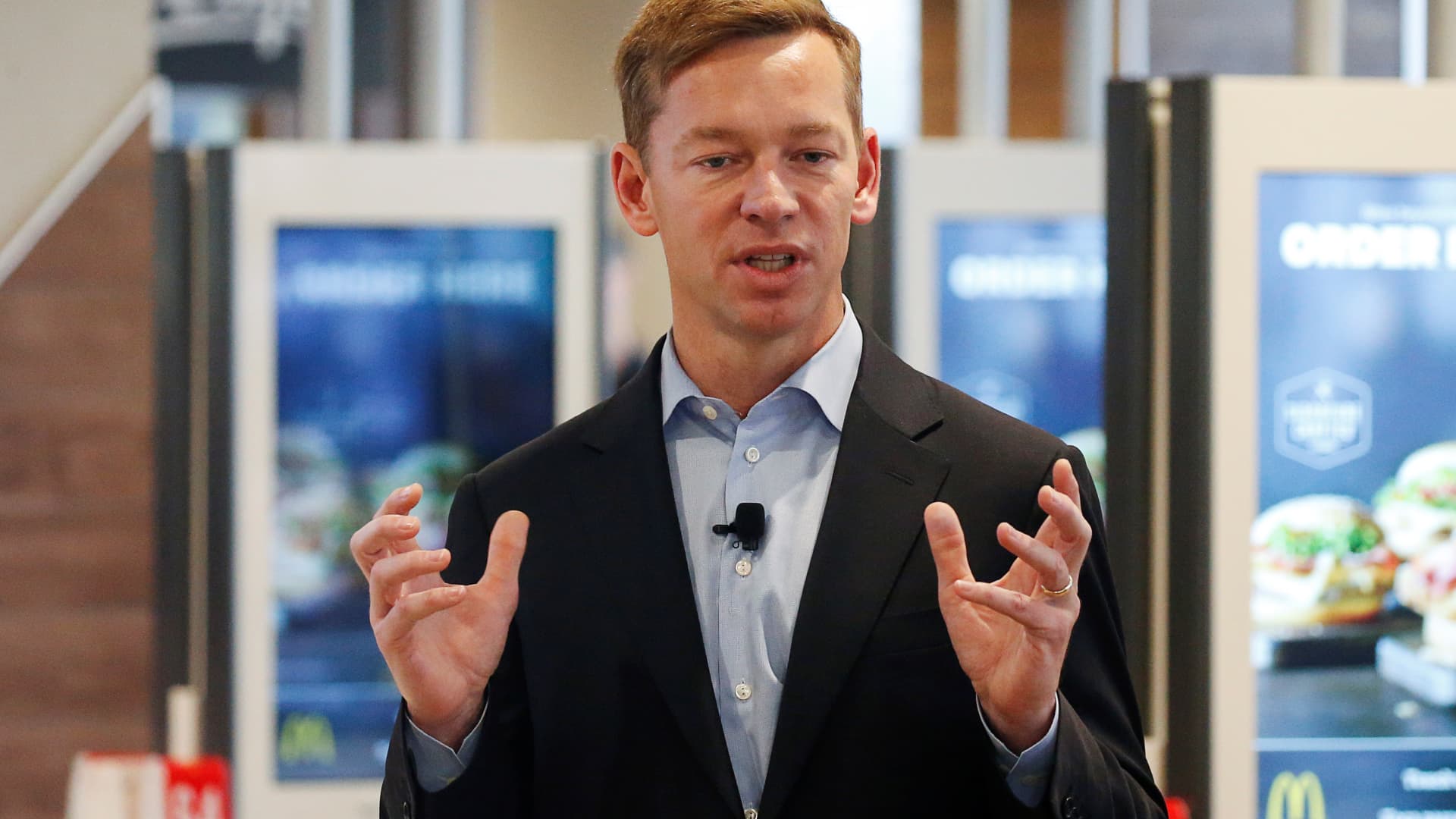Chris Kempczinski, McDonald’s, speaks during a press conference in New York, November 17, 2016.
Shannon Stapleton | Reuters
McDonald’s franchisees unhappy with changes being made to ownership terms are expressing a lack of confidence in the company’s CEO and U.S. president, according to a new survey of owners that was viewed by CNBC.
The National Owners Association, an independent franchisee advocacy group for McDonald’s owners, recently polled its membership on changes being made to franchisee lease terms.
The results show an overwhelming majority – 87% – of respondents support calling a vote of “no confidence” on CEO Chris Kempczinski and the company’s U.S. president, Joe Erlinger.
In addition, nearly 100% feel the company should have collaborated with and consulted owner leaders before announcing changes to the franchise system, and 95% said the company’s senior corporate management does not have the best interest of owners in its approach to franchising.
The NOA has about 1,000 members, and nearly 700 responded to the poll. McDonald’s had more than 2,400 owners as of the end of last year. Franchisees run some 95% of McDonald’s locations and are key to the company’s operations.
NOA didn’t immediately respond to a request for comment on the survey results.
McDonald’s alerted owners in late June that beginning in 2023 it would evaluate potential new operators equally, instead of giving preferential treatment to spouses and children of current franchisees.
It is also separating the process through which it renews leases, given in 20-year terms, from assessments of whether owners can operate additional restaurants. In a message to owners about some of the changes, viewed by CNBC, the company said, “This change is in keeping with the principle that receiving a new franchise term is earned, not given.”
The move sent a shock wave through the franchisee community. It came on the heels of plans to roll out a new grading system for restaurants next year that some fear will alienate workers in a time of unprecedented labor challenges. The company has been actively working to recruit new and more diverse owners, underscored in a message to franchisees from Erlinger that was viewed by CNBC.
“We’ve been doing a lot of thinking about how we continue to attract and retain the industry’s best owner/operators – individuals who represent the diverse communities we serve, bring a growth mindset and focus on executional excellence, while cultivating a positive work environment for restaurant teams,” he said.
In December, McDonald’s pledged to recruit more franchisees from diverse backgrounds, committing $250 million over the next five years to help those candidates finance a franchise. McDonald’s declined to comment on the new changes or the survey.
McDonald’s controls lease terms for owners, and there is speculation among some in the franchisee community that the changes are being made to bring in new owners with higher lease rates than established owners would face.
The NOA poll found 83% of respondents said the new rules were a “veiled attempt to raise rents.” And 95% said they do not feel valued by corporate considering recent developments. In addition, 71% of respondents said existing or legacy owners should not be treated the same as potential new operators.
Other franchisee organizations are also frustrated with the changes.
A separate poll from the National Franchisee Leadership Alliance, also viewed by CNBC, showed nearly 100% of its over 400 respondents feel McDonald’s Leadership should have collaborated with and consulted with owners before announcing changes. More than 90% said the changes are not supported, and 90% said they felt their business would be negatively impacted by proposed changes.
The National Black McDonald’s Operators Association also returned a vote of no confidence in CEO Kempczinski, Restaurant Business Online reported in late June.
The tensions come at a time when McDonald’s U.S. business is strong and franchisee profits have been at record highs. The company topped estimates for earnings and same-store sales last quarter. The stock is down 5% year to date.





















Discussion about this post